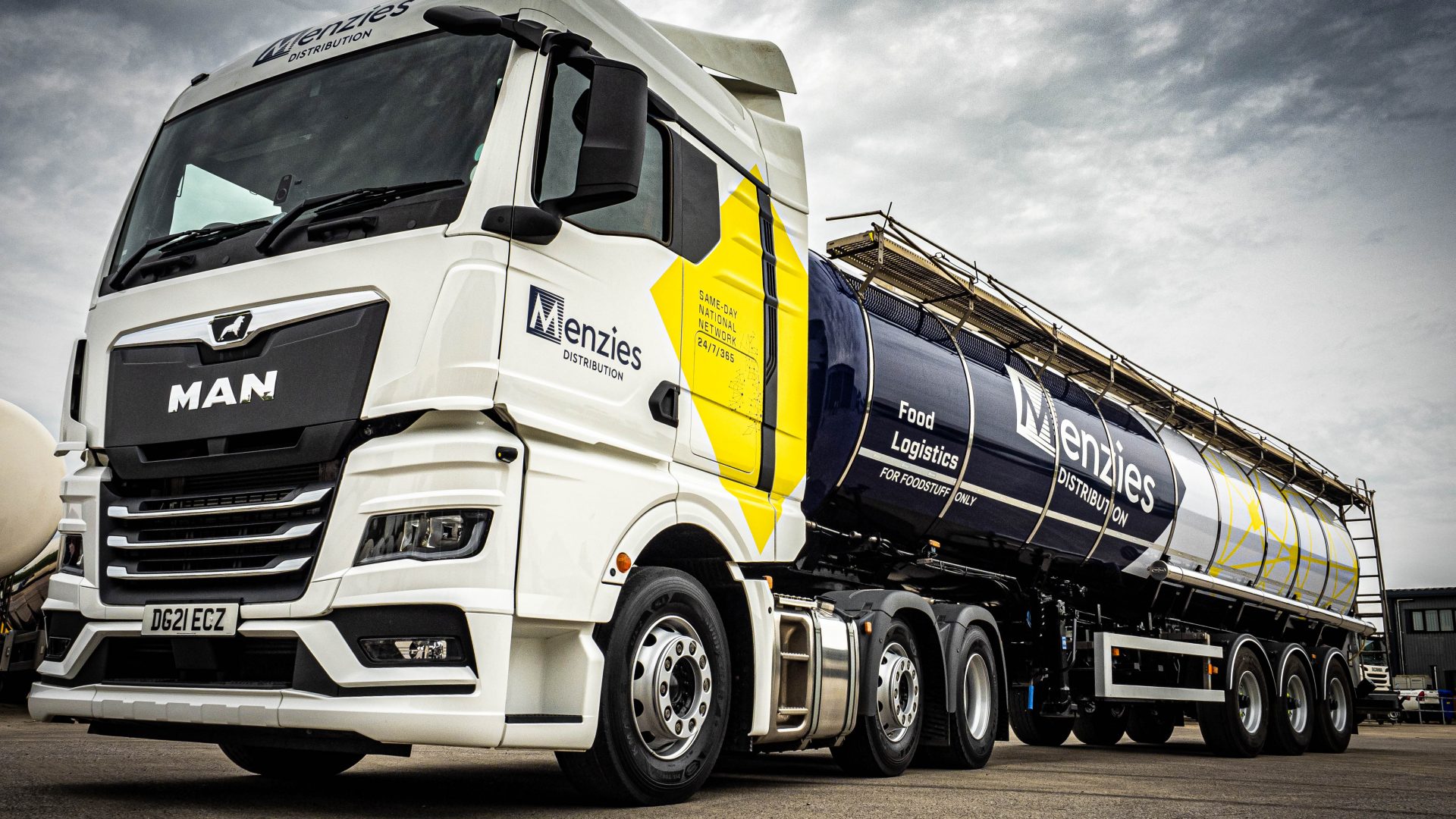

17 April 2024
Menzies Distribution Group company, Menzies Distribution Solutions (MDS), a leading tanker logistics provider is embarking on an innovative trial to test the viability of Hydrotreated Vegetable Oil (HVO) for environmentally conscious tanker transportation.
Menzies is making substantial progress in adopting sustainable practices within its tanker logistics operations by conducting a trial of HVO, a sustainable fuel alternative, across its tanker fleet. This move not only reinforces the Group’s dedication to sustainable and responsible logistics practices, but also as a leader in this space off the back of recent announcements on Menzies’ participation in the Scottish Government decarbonisation pathway development and the UK Government zero emission HGV infrastructure demonstrator programme.
HVO, recognized for its reduced carbon footprint compared to diesel, boasts a potential CO2 emissions reduction of approximately 90%, as claimed by its manufacturers. It can function as the primary fuel source for vehicles or be seamlessly integrated with diesel, presenting an opportunity for enhanced CO2 emissions without necessitating modifications to existing engines or additional vehicle maintenance.
The success of the HVO trial could signify a pivotal breakthrough in carbon emissions reduction, prompting consideration of a wider spread implementation of HVO across other fleet operations as part of the business’s 2035 net zero ambition.
This HVO trial, building on the successful introduction of HVO with Ball Packaging in November 2023, forms a key element in Menzies’ commitment to accelerating the decarbonisation of transport activities.
Mark Davies, Business Unit Director at Menzies Distribution Solutions, commented:
“We are dedicated to sustainable logistics practices. Through the implementation of our HVO trial, our goal is to not only decrease our carbon emissions but also establish a new benchmark for alternative fuel consideration within tanker operations.”